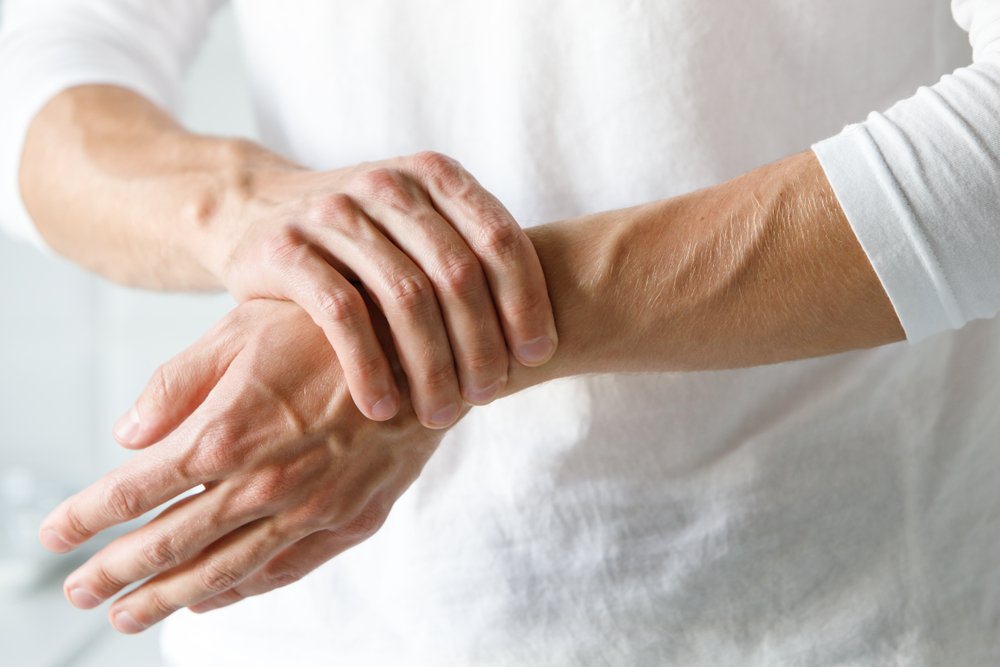Arthritis of the Hand
What is Arthritis of the Hand?
Broadly speaking, arthritis is a painful disease that attacks the tissues lying within your joints, which are the meeting points of two bones. Arthritis of the hand commonly occurs near areas such as the wrist, knuckles, and finger joints. Arthritis here can cause the cartilage to break down, exposing the ends of the bones and causing stiffness, pain, and swelling.
Who Does Arthritis of the Hand Affect?
Arthritis of the hand can affect anyone. However, there are certain groups that are more prone to developing hand arthritis than others.
Hand arthritis is commonly observed in patients of advanced age. For those 50 and older, bones and joints tend to become weaker and more brittle, increasing the possibility of arthritis.
Additionally, certain genes or traits can make you more likely to develop hand arthritis. Women, Caucasian people, and those who are overweight are all more likely to develop hand arthritis than their counterparts. On top of that, if you’ve previously suffered a hand injury, you could develop arthritis in the future.
What are the Symptoms of Hand Arthritis?
While arthritis of the hand can be difficult to treat, the condition is much more receptive to treatment when it is handled early on.
Some of the most common early onset symptoms of hand arthritis include swollen joints in the hands, pain and stiffness in your hands in the mornings, and a dull or burning sensation that can arise after using your hands for an extended amount of time.
If you’ve had arthritis for a while, your symptoms are likely more frequent and more severe. You may find that the discomfort transitions from a dull ache to a sharper pain. Hand pain may wake you up in the middle of the night or change how you are using your hands.
If you are experiencing a clicking, cracking, or grinding sensation when you try to bend your fingers, the culprit is likely hand arthritis. Another telltale sign is the inability to open and close your fingers.
How is Arthritis of the Hand Treated?
Arthritis of the hand can be treated in a number of ways, and your specific treatment method will be determined by the type of arthritis, what stage it is in, your age, your activity level, and other contributing factors.
Regardless of the type of treatment, the main goals involve increasing your mobility and functioning and decreasing the pain and stiffness in your joints. Effective treatments for hand arthritis will help bring you back to performing the daily activities you most enjoy.
Splints and braces commonly prove effective in treating hand arthritis. The joint is protected to increase its stability and reduce strain. You’ll be shown by your doctor how to properly wear your splint or brace. Your provider may also offer medications such as acetaminophen, NSAID pain relievers, or corticosteroids to reduce your pain.
At home, you can continue to treat your hand arthritis in several ways. Your doctor may recommend stretches and strengthening exercises to help reduce your symptoms. You can also utilize hot and cold packs to reduce your swelling and pain levels. Finally, lifestyle changes such as adopting a healthy diet, starting an exercise regimen, and getting plenty of rest can all aid in easing your hand arthritis symptoms.
Hand Arthritis Surgical Treatment Options
In some severe cases, arthritis of the hand is best treated through surgical methods. Before undergoing surgery, your doctor will speak with you about the procedure and its potential risks, answering any questions you may have along the way.
There are several different options when it comes to hand arthritis surgery, but the three most common procedures include arthrodesis, arthroplasty, and tendon transfers.
Arthrodesis, also known as joint fusion, involves inserting screws and a plate to hold the bones of the joint in place. Although this option limits movement, it offers a more stable joint and reduces pain.
Arthroplasty, also known as joint replacement, involves placing an artificial implant to replace the damaged joint.
Tendon transfers involve placing a portion of a healthy tendon into your hand to replace a former tendon that has ruptured. Tendons may rupture due to continued inflammation that is a trademark of arthritis. This treatment replaces the impacted tendon, leading to restored function.
To learn more about Hand Arthritis treatment options in the Fort Myers, Estero and Naples area, contact Orthopedic Center of Florida.
Resources
- Hand Arthritis
- Thumb Arthritis
- Wrist Arthritis
- Elbow Osteoarthritis
- Carpal Tunnel and Frequently Asked Questions
- Trigger Finger and Frequently Asked Questions
- Tennis Elbow
- Basal Joint Osteoarthritis
- Colles Fracture
- De Quervain’s Tenosynovitis
- Distal Radius Fracture (Broken Wrist)
- Dupuytren’s Disease
- Flexor Tendon Injuries
- Fractures of the Finger
- Fractures of the Hand (Metacarpal Fractures)
- Lateral Epicondylitis (Tennis Elbow)
- Medial Epicondylitis (Golfer’s Elbow)
- Nerve Injuries of the Hand
- Osteoarthritis of the Hand
- Rheumatoid Arthritis of the Hand
- Triangular Fibrocartilage Complex Tears

Meet our Hand, Wrist & Elbow Doctors:
Sandra B. Collins, MD
Board Certified, Fellowship Trained Orthopedic SurgeonHand and Upper Extremity Specialties[button...
Alicia F. Cowan, MD
Fellowship Trained SpecialistHand and Upper Extremity SpecialtiesCrush Injuries to Hand...
Spencer P. Skinner, MD
Board-Certified, Fellowship-Trained Orthopedic Surgeon Specializing in Hand, Upper Extremity, and Peripheral Nerve SurgeryOrthopedic Services and Sports Medicine SpecialtiesShoulderDislocations &...



